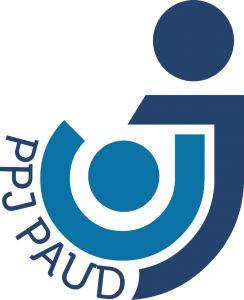Implementasi Media Roda Putar dalam Mengembangkan Konsep Angka Anak di Taman Kanak-Kanak
DOI:
https://doi.org/10.30736/jce.v8i1.2176Keywords:
Skills; NumberConcepts;Spinning Wheel Media; Kindergarten ChildrenAbstract
Mengimplementasikan media untuk anak usia dini harus menarik. Media yang digunakan berupa roda berputar agar anak bisa mengenal konsep angka. Bertujuan untuk mengetahui pengaruh media roda putar terhadap kemampuan konsep bilangan anak di TKN Pembina 01 Ranah Pesisir. Artikel ini berdasarkan penelitian yang membahas tentang kemampuan konsep bilangan anak. Desain penelitian yang digunakan adalah quasi eksperimen dengan menggunakan teknik kuantitatif. Sampel penelitian berjumlah 10 siswa dari masing-masing kelas B1 dan B2 yang merupakan siswa TKN Pembina 01 Ranah Pesisir. Pengumpulan data dilakukan dengan enam item pernyataan, sedangkan analisis data dilakukan dengan uji normalitas, homogenitas, dan hipotesis. Berdasarkan hasil analisis data, rata-rata nilai pre-test kelas eksperimen sebesar 11,90, sedangkan rata-rata nilai pre-test kelas kontrol sebesar 13,70. Sementara itu, rata-rata nilai post-test kelas eksperimen sebesar 22,90, sedangkan rata-rata nilai post-test kelas kontrol sebesar 21,50. Data akhir yang diperoleh tersebar merata. Hasil uji hipotesis menunjukkan nilai signifikansi 2-tailed sebesar 0,03 < 0,05. Dengan demikian, dapat disimpulkan bahwa pemahaman konsep bilangan anak di TKN Pembina 01 Ranah Pesisir dipengaruhi oleh media roda putar.
References
Amalia Rosanda, Nur, dkk. (2024). Upaya Meningkatkan Kemampuan Mengenal Angka Melalui Bermain Stik Angka Pada KelompokB 2 di TK Kartika V 15 Loa Janan. BOCAH: Borneo Early Childhood Education and Humanity Journal. Vol 3 (1), 35-53.
Fauziddin, M., & Mufarizuddin, M. (2018). Useful of Clap Hand Games for Optimalize Cogtivite Aspects in Early Childhood Education. Jurnal Obsesi : Jurnal Pendidikan Anak Usia Dini, 2(2), 162. https://doi.org/10.31004/obsesi.v2i2.76
Febri Reza, Zulhamida & Farida Mayar. (2024). Pengaruh Teknik Spuit Terhadap Kemampuan Menggambar Bentuk di Taman Kanak-kanak Melati Ikhlas Padang. Bunayya. Vol 10(2), 162-172.
Islamiati, R, dkk. (2018). Sikap Masyarakat Terhadap Orang Dengan Gangguan Jiwa Didesa Kersamana Kabupaten Garut. Jurnal Keperawatan BSI, 6 (2), 195-205.
Jahja. (2013). Psikologi Perkembangan Anak Usia Dini (vol.1, Issue 2). https://doi.org/10.31004/obsesi . Vli2.34
Khairunnisa.Pengembangan Media Permainan Roda Putar Berbasis Website Untuk Keterampilan Membaca Bahasa Prancis Siswa Kelas IV SMA Angkasa Adisutjipto, Jurnal 2017.
Madyawati, L. (2016). Strategi Pengembangan Bahasa Anak Usia Dini. Jakarta: KENCANA.
Mulyasa. (2012). Manajemen PAUD. Jakarta: PT Remaja Rosdakarya.
Mulyani, S. (2017). Metodologi Penelitian Bisnis untuk Akuntansi dan Manajemen.
Mursyid. (2015). Belajar dan Pembelajaran PAUD. Bandung: PT Remaja Rosdakarya.
Musfiroh, Tadkirotun. (2012). Pengembangan Kecerdasan Majemuk. Jakarta: Universitas Terbuka.
Mustikowati, Endang. (2013). Meningkatkan Kemampuan Mengenal Konsep Angka 1-10 Melalui Bermain Roda Angka Kelompok A TK Idhata Unesa. PAUD Teratai. Vol 2 (1).
Nurmainis. (2012). PeningkatanPengenalan Konsep Angka Melalui Permainan Kalender di Taman Kanak-kanak Islam Silahturahmi Kabupaten Padang Pariaman. PESONA PAUD. Vol 1 (5), 1-13.
Patmonodewo, dkk. 2013. Pendidikan Anak Prasekolah. Jakarta: PT Rineka Cipta.
Reza, Z. F., & Mayar, F. (2024). Pengaruh Teknik Spuit Terhadap Kemampuan Menggambar Bentuk di Tamanan Kanak-kanakMelati Ikhlas. 10(2), 162–172.
Sudarna. 2016. PAUD Pendidikan Anak Berkarakter. Yogyakarta: Genius Publisher..
Safita, Maiyida & Dadan Suryana. (2022). Pengenalan Warna Melalui Media Stick Warna Terhadap Kemampuan Kognitif Anak Usia 4-5 Tahun. Bunayya. Vol 8(1), 28-43
Sugiyono. (2019). Met ode penelitian kuantitatif dan R&D. Bandung : Alfabeta Aksara.
Sujiono, Yuliani Nuraini, dkk. (2014). Metode Pengembangan Kognitif. Tenggerang Selatan: Universitas Terbuka.
Suryana, D. (2021). Pendidikan Anak Usia Dini Teori dan Praktik Pembelajaran. Jakarta: KENCANA.
Syahrul & Nurhafizah. (2021). Analisis Pengaruh Pola Asuh orangtua terhadap Perkembangan Sosial dan Emosional Anak Usia Dini Dimasa Pandemi. Corona Virus 19. Jurnal Basicedu. Vol 5(2),683-696.
Downloads
Published
How to Cite
Issue
Section
License
Copyright (c) 2024 Rini Febriani, Nurhafizah Nurhafizah

This work is licensed under a Creative Commons Attribution-ShareAlike 4.0 International License.
Please find the rights and licenses in JCE (Journal of Childhood Education). By submitting the article/manuscript of the article, the author(s) agree with this policy. No specific document sign-off is required.
1. License
Use of articles will be governed by the Creative Commons Attribution - ShareAlike license as currently displayed on Creative Commons Attribution-ShareAlike 4.0 International License.
2. Author(s)' Warranties
The author warrants that the article is original, written by stated author(s), has not been published before, contains no unlawful statements, does not infringe the rights of others, is subject to copyright that is vested exclusively in the author and free of any third party rights, and that any necessary written permissions to quote from other sources have been obtained by the author(s).
3. User Rights
JCE (Journal of Childhood Education)'s spirit is to disseminate articles published are as free as possible but there is a little payment for publication. Under the Creative Commons license, JCE (Journal of Childhood Education) permits users to copy, distribute, display, and perform the work for commercial purposes. Users will also need to attribute authors and JCE (Journal of Childhood Education) on distributing works in the journal and other media of publications.
4. Co-Authorship
If the article was jointly prepared by more than one author, any authors submitting the manuscript warrants that he/she has been authorized by all co-authors to be agreed on this copyright and license notice (agreement) on their behalf, and agrees to inform his/her co-authors of the terms of this policy. JCE (Journal of Childhood Education) will not be held liable for anything that may arise due to the author(s) internal dispute. JCE (Journal of Childhood Education) will only communicate with the corresponding author.
5. Miscellaneous
JCE (Journal of Childhood Education) will publish the article (or have it published) in the journal if the article’s editorial process is successfully completed. JCE (Journal of Childhood Education)'s editors may modify the article to a style of punctuation, spelling, capitalization, referencing and usage that deems appropriate. The author acknowledges that the article may be published so that it will be publicly accessible and such access will be free of charge for the readers as mentioned in point 3.
JCE (Journal of Childhood Education) by Universitas Islam Lamongan is licensed under a Creative Commons Attribution-ShareAlike 4.0 International License.Based on a work at http://journalfai.unisla.ac.id/index.php/jce.












